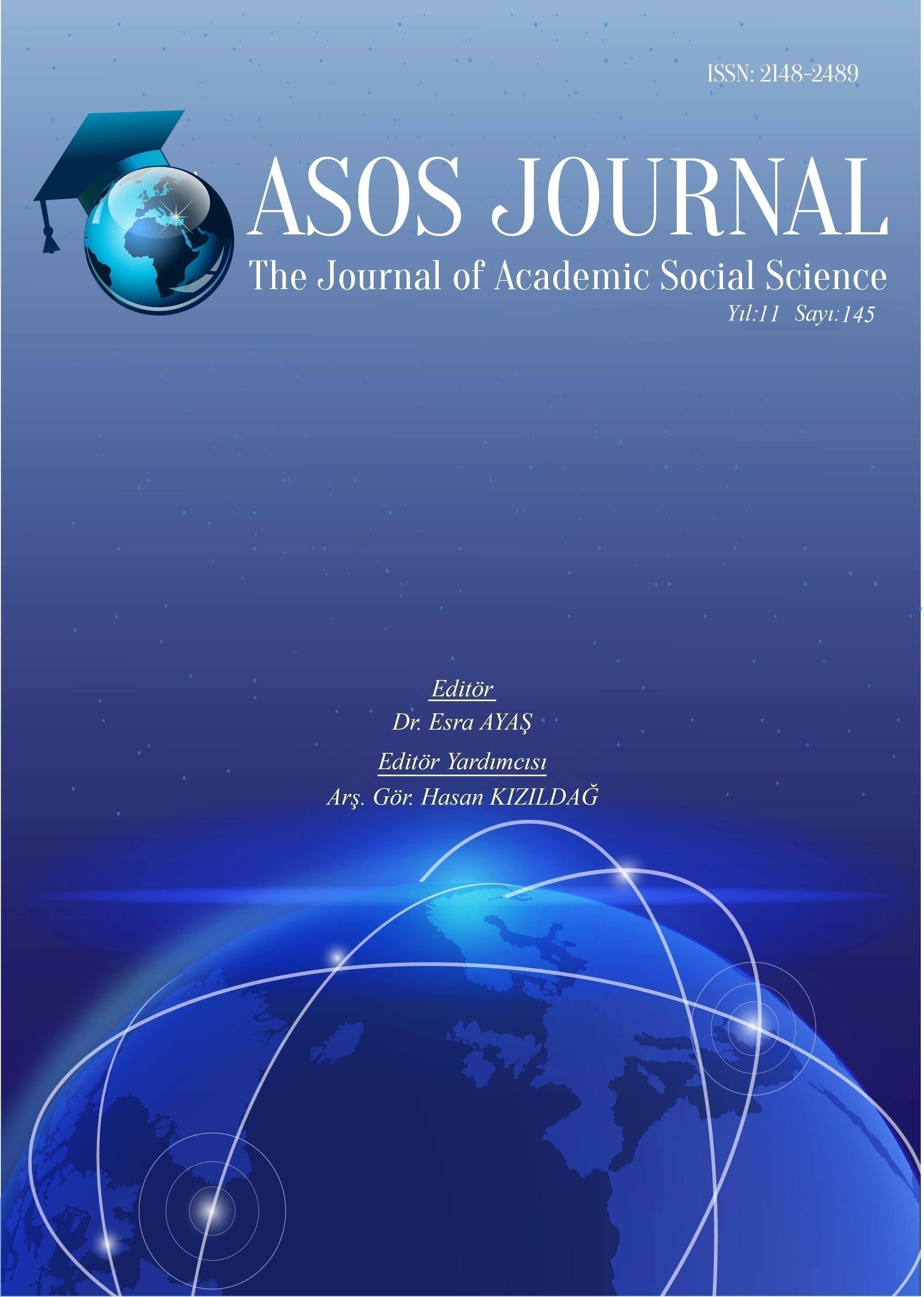Author :
Abstract
Sanal eylemlerin ontolojisinin incelenmesi, esasında doğrudan sanal ortamlardaki eylemlerin doğasına ilişkin bir incelemedir. Bu makalede, öncelikle konuya yönelik geleneksel araştırmalar incelenmiş ve ardından bu araştırmaların sanal eylemlerin doğasına ilişkin tespitleri göz ardı ettiği gösterilmiştir. Daha önce yapılan araştırmalar sanal eylemi daha çok etik, psikolojik ya da hukuki çerçeveden ele almakta ve sanal eylemin bireysel ya da toplumsal etkilerine odaklanmaktadır. Ayrıca bu araştırmalar daha çok sanal eylemin kendisini değil onun etkisini ya da sonuçlarını tartışmaktadır. Bu tespitlerden yola çıkarak, bu çalışmada, sanal bir eylemin asgari düzeyde iki farklı tür üzerinden araştırılması gerektiği vurgulanmış ve sanal eylemler üzerine yapılacak çalışmalar için alternatif bir yöntem geliştirilmiştir. Sofistike Eylem Modeli olarak adlandırılan bu yönteme göre, sanal eylem araştırmalarında öncelikle eylemi gerçekleştiren öznesinin ve ardından eylemin gerçekleştiği ortamın analizinin yapılması gerektiği ileri sürülmüştür. Sanal öznenin ve ortamın farklılığının sanal eylemin ontolojisini de farklılaştıracağı iddia edilmektedir. Bu bağlamda makalenin odak noktası, herhangi bir sanal eylemle artırılmış bir eylemin bambaşka ontolojilere sahip olduğu üzerinedir. Sanal eylemler içerisinde artırılmış eylemlerin statüsünün diğer sanal eylemlere göre üstünlüğü kabul edilir. Bundan önceki araştırmalarda, sanal eylemler içerisinde bu denli önemli bir statüye sahip olan artırılmış eylemlerin göz ardı edilmesi, sanal eylemler üzerine yapılan bu çalışmaları eksik ve kusurlu kılmaktadır. Artırılmış eylemlerin doğası sanal eylemleri bambaşka bir atmosfere taşır. Makale, artırılmış eylemlerin bu ayırt edici doğasını, sanal eylemlerin ontolojik ayrılığını ve bundan sonraki çalışmalar için Sofistike Eylem Modelinin önemini vurgulayarak sonuçlandırılır.
Keywords
Abstract
The study of the ontology of virtual actions is essentially an examination of the nature of actions in virtual environments directly. This article first examined traditional research on the subject and then showed that these researches ignored findings about the nature of virtual actions. Previous studies have dealt with virtual action mostly from an ethical, psychological, or legal framework and focused on the individual or social effects of virtual action. In addition, these studies discuss not the virtual action itself, but its effect or consequences. Based on these findings, in this study, it was emphasized that a virtual action should be investigated through two different types at a minimum, and an alternative method was developed for studies on virtual actions. According to this method, which is called the Sophisticated Action Model, it has been argued that in virtual action research, firstly the subject performing the action and then the environment in which the action takes place should be analyzed. It is claimed that the difference of virtual subject and environment will also differentiate the ontology of virtual action. In this context, the focus of the article is on the fact that an action augmented by any virtual action has completely different ontologies. The status of augmented actions within virtual actions is considered superior to other virtual actions. The fact that augmented actions, which have such an important status among virtual actions, were ignored in previous studies makes these studies on virtual actions incomplete and flawed. The nature of augmented actions takes virtual actions to a completely different atmosphere. The article concludes by emphasizing this distinctive nature of augmented actions, the ontological separation of virtual actions, and the importance of the Sophisticated Action Model for further studies.





